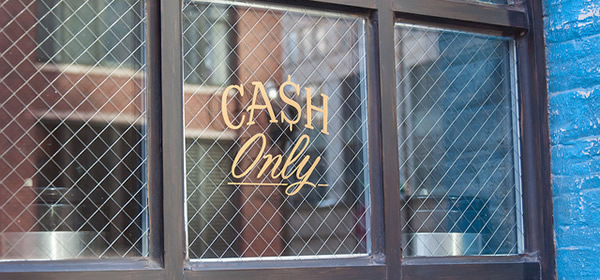
Credit cards offer consumers many benefits. They’re convenient, you can use them to earn rewards points, and to help build your credit history. Canadians can’t seem to get enough of their credit cards – we rank among the highest in the world in cashless transactions.
While credit cards are handy for consumers, have you ever stopped to think about the effect they have on retailers? Dan Kelly, president of the Canadian Federation of Independent Business (CFIB), recently wrote an interesting article for the Financial Post about the difficulties small businesses face when it comes to paying by plastic.
Credit Card Fees are Costly to Small Business
There’s no such thing as a free lunch. While consumers may believe they’re receiving reward points for free every time they swipe their credit card, someone has to foot the bill. Every time you make a purchase by credit card, between 1 per cent and 3.5 per cent goes to your credit card issuer. Who pays these fees? Retailers – in fact, retailers paid as much as $7 billion last year alone in credit card fees.
The premium credit cards are even worse – although cardholders receive better rewards, issuers charge retailers as much as 3.5 per cent. With a slew of new premium credit cards every year, the fees are really taking a bite out of the bottom line of small business.
Small Business Fights Back
You’d think small businesses would simply refuse to accept premium credit cards. Unfortunately, that’s considered a merchant violation with major credit cards. Unhappy with the rules of the game, small business went straight to the federal competition tribunal to argue their case. Despite a decision against them, they’re still lobbying to the federal government to level the playing field.
The credit card industry is highly regulated. In 2010 the Code of Conduct for the Credit and Debit Card Industry was introduced. The code of conduct was highly praised by small business, as it gave them more power when dealing with issuers. While it was a step in the right direction, according to Mr. Kelly, there’s still a lot more work that needs to be done.
We haven’t s seen a downward trend in credit card fees – in fact, we’ve s seen quite the opposite. The CFIB is lobbying for several changes to the credit card industry, including a “meaningful” decrease in credit card processing fees. They would also like to see a level playing field for credit card fees. While Interac Debit charges a flat fee, which makes it a lot easier for small businesses to control their cost, the fees can range from 1 per cent to 3.5 per cent for credit cards. It’s getting even more costly for small business, who must upgrade their point of purchase devices to Chip-and-PIN technology.
Small Business Has a Choice
When it comes to credit cards, small businesses have a choice. No one is forcing small businesses to accept credit cards. If it doesn’t make sense for businesses to accept credit cards – and pay the transaction fees that come along with them – they are free to only accept cash.

Photo by bradhoc CC BY 2.0 cropped
It’s important to recognize that the processors, banks and issuers provide a service consumers value. While some consumers may be willing to pay for small purchases in cash, a lot will simply decide to shop elsewhere if credit card isn’t offered. Instead of looking at credit cards as an added expense, small businesses need to aware of the benefits they provide. What’s better – paying 2 per cent to 3.5 per cent in fees or losing 100 per cent of a purchase because consumers decide to shop elsewhere?
The Bottom Line
It’s important for consumers to be aware of the effects credit cards can have on small businesses. Every time you swipe your favourite premium credit card at mom and pop shops, you could be taking a big bite out of their bottom line.
Although many businesses recognize the importance of credit cards, next time you make a purchase maybe you’ll consider using your regular credit card, saving your premium credit cards for big retailers who can afford the costly fees that come with them.




